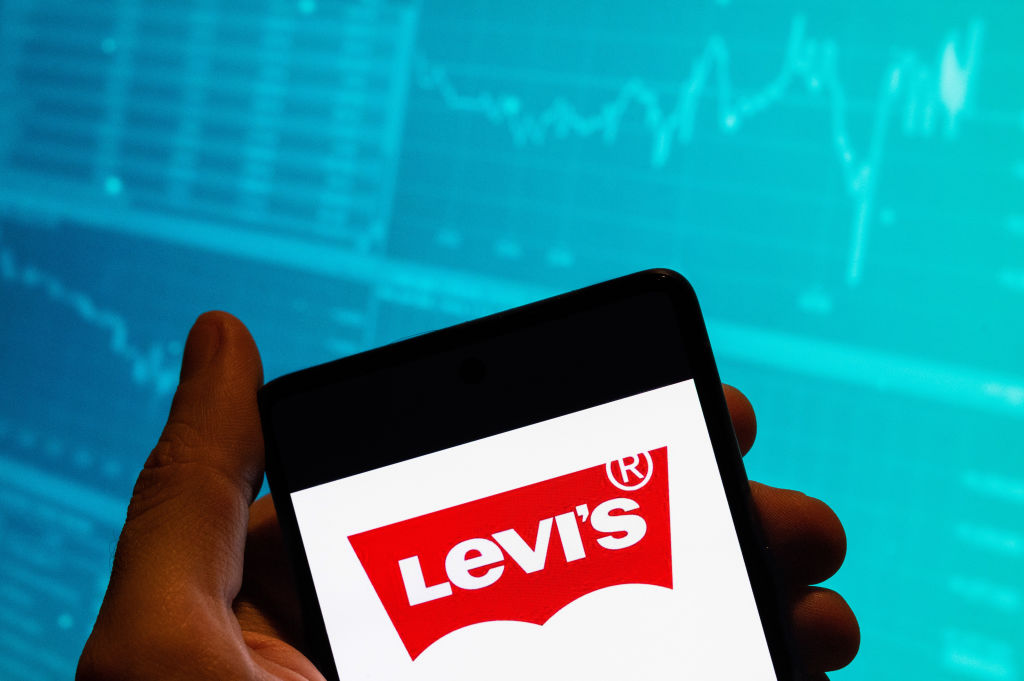
Source: SOPA Images / Getty
Levi Strauss & Co. announced Wednesday it will create “a more diverse and inclusive customer experience” on its e-commerce channels through the use of models generated by artificial intelligence. As you can imagine, the announcement is causing backlash amid people wondering the obvious: why not just HIRE diverse models?!
In a statement, the company said its “models should reflect our consumers, which is why we’re continuing to diversify our human models in terms of size and body type, age and skin color,” but went on to explain that working with actual human beings simply isn’t enough to meet its diversity and inclusion goals.
“While AI will likely never fully replace human models for us, we are excited for the potential capabilities this may afford us for the consumer experience,” said Dr. Amy Gershkoff Bolles, global head of digital and emerging technology strategy at Levi Strauss & Co. “We see fashion and technology as both an art and a science, and we’re thrilled to be partnering with Lalaland.ai, a company with such high-quality technology that can help us continue on our journey for a more diverse and inclusive customer experience.”
Okay, but what do you mean by “AI will likely never fully replace human models?” The “likely” and “fully” parts of that statement are troubling, to say the least, because, first, it’s weird if there’s any effort at all to use AI as a replacement for human models. And if there is such an effort, to say it’s “likely” humans won’t be “fully” replaced by AI is not reassuring at all. There is “likely” no shortage of real-life models of color who could use a paycheck, after all, and people fully realize that and have responded in kind.
Genuinely curious what Levi's thinks the point of diversity is if it doesn't actually include a diverse group of people
— big belly gorgon (@pr0fiteer) March 24, 2023
So instead of increasing diversity by hiring actual Black and Brown models, Levi's is going to get AI models. The conversation around diversity has hit the "jumped the shark" level. Cuz WTF. https://t.co/kdZvMzTtOL
— Luvvie (@Luvvie) March 27, 2023
Can't wait til @LEVIS starts using AI models so I can just never buy anything from them again. https://t.co/I0V2S70K4h
— Patrick Lucas Austin (@patbits) March 28, 2023
Still, the company insisted that diversity, equity and inclusion are a “top priority” and that when it comes to human models and AI, it’s not an “either-or” situation.
“This partnership and test are still in the very early stages, so we are still working out what this might look like. However, I’d like to emphasize this will not replace or impact photoshoots, this is purely supplemental to our current ways of working,” the company’s statement continues. “Over the past year, we’ve been focused on ensuring that not only are our models diverse but also that those working on the content both in front of and behind the camera are reflective of our broad consumer base, and this will continue to be a priority for us.
“Our goal for our partnership with Lalaland.ai is to improve the consumer experience and unlock a future where we can enable more consumers to see our products on more models that look like themselves –potentially as soon as a product is released – creating a more personal and inclusive shopping experience in real-time. It’s important to note that this partnership is still in the early stages, with tests on track for later this year. Once we have key learnings and feedback, we can assess how AI will be used in the future.
“We are still hiring a wider range of human models and will continue to do so,” Levi’s added.
Levi Strauss & Co. Responds To A.I. Backlash
Levi Strauss & Co. knows the A.I. announcement raised eyebrows and on March 28 it released a new statement noting that its pilot is “not a means to advance diversity or as a substitute for the real action that must be taken to deliver on our diversity, equity and inclusion goals.”
The brand also apologized that it was not “portrayed as such.”
“We realize there is understandable sensitivity around AI-related technologies, and we want to clarify that this pilot is something we are on track to experiment with later this year in the hopes of strengthening the consumer experience,” added Levi Strauss & Co. “Today, industry standards for a photoshoot will generally be limited to one or two models per product. Lalaland.ai’s technology, and AI more broadly, can potentially assist us by allowing us to publish more images of our products on a range of body types more quickly.
That being said, we are not scaling back our plans for live photo shoots, the use of live models, or our commitment to working with diverse models.”
That was fast.
The Levi Strauss & Co. conundrum has drawn parallels to Capitol Records’ (very brief) signing of FN Meka, a rapper avatar created by humans that made headlines last year.
What do YOU think about artificial intelligence clearly making waves in the fashion and music world?

















